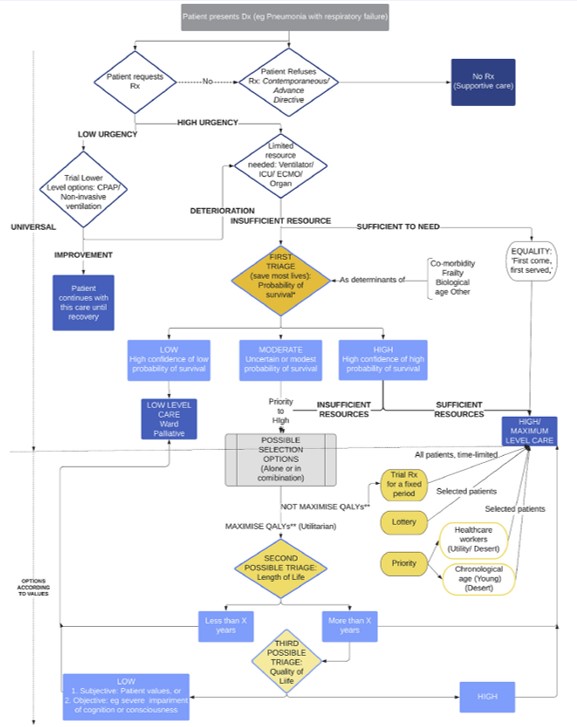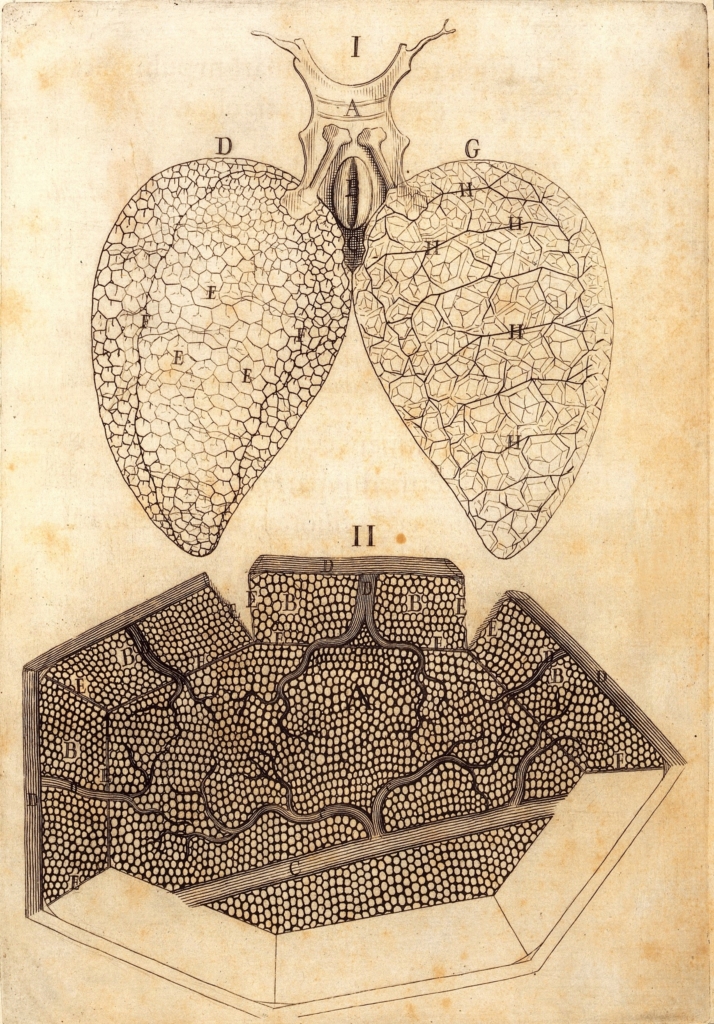Independent Teaching
Morality and Medicine (syllabus). 2019-2023
Course description: An introduction to biomedical ethics. designed the course to move from small-scale clinical and individualistic problems to social and public health issues. We began with the ethics of provider and consumer decision making, including abortion and euthanasia. This was followed by sections on disability and racial disparities within health care, which naturally extended to broader contexts affecting health, such as policy and the economy. In the 2020 version of this course, I integrated writings on the Covid-19 pandemic into each topic. Recent syllabi featured a unit on biotechnology, data, and medical AI (Six 30 student classes).
Here are some things my student said about this class.
Sample assignments:
Active reading
Analytical comment
Documentary response
Mind and Medicine: Understanding New Technologies (syllabus). 2022
Course description: An introduction to philosophical issues in psychiatry and medicine. The course progresses from foundational debates on the concepts of disease and mental illness to broader epistemological topics such as the classification and explanation of diseases and the role of clinical judgment in diagnosis. This culminates in contemporary debates in medicine, such as the push for evidence-based medicine and the role of racial categories in diagnosis. A running theme throughout the course is the introduction of novel technologies into the field—especially data-driven technology such as machine learning—and the new epistemological challenges that accompany them (Three 35 student classes).
Race: History, Biology, Psychology, Philosophy (syllabus). 2021
Course description: An interdisciplinary course on the concept of race, which I redesigned with a unit on contemporary political discourse. The course first introduced students to contemporary ideas in the metaphysics of race, and then equipped them to further explore and evaluate these theories vis-à-vis past and present efforts to define race scientifically. Two background themes of the course were (i) the role of human values in shaping scientific knowledge and (ii) the co-option of science for social political ends (30 student class).
Here are some things my students said about this class.
And some examples of their class projects.
Sample assignments:
Question bridge
Film response
Final project
Magic, Medicine, and Science (syllabus). 2018
Course description: A survey of the pre-history of modern science. My course focused on four eras: ancient Greek cosmology and medicine; Arabic/Persian developments; late Renaissance magic, alchemy, and astrology; and 17th century Baconian science. Two background themes of the course were (i) the effect of broader social events—e.g., wars, migrations, religious disputes, technological developments, European expansionism—on the development of science and (ii) the importance of purportedly non-scientific knowledge in this history (30 student class).
Some examples of student projects.
Additional Teaching Competences and Interests
Undergraduate, introductory
- Introduction to Philosophy of Science
- Introduction to Biomedical Ethics
- Technology: Philosophy and Ethics
- Early Modern European Philosophy
- Logic and Critical Thinking / Scientific Reasoning
Upper-level undergraduate
- Technology and Human Nature
- Philosophy of Race and Racial Identity
- Machines, Organisms, and Agency
- Molecular Biology and Society
Graduate
- Philosophy of Science – Core Topics
- Representation and Scientific Modeling
- Data-Driven Technology in Science and Society
- Philosophy of Scientific Experimentation
- Mechanisms and Causation in Biology
Teaching Assistant Experience
University of Pittsburgh
Mind and Medicine. Spring 2017
Nature of the Emotions. Fall 2016
Georgetown University
Philosophy of Music. Spring 2015 (with some co-instruction)
Introduction to Logic. Fall 2014
Introduction to Ethics. Spring 2014
Introduction to Philosophy. Fall 2013
Introduction to Philosophy. Spring 2013
Introduction to Ethics. Fall 2012




Independent Teaching
Morality and Medicine (syllabus). 2019-2023
Course description: An introduction to biomedical ethics. I designed the course to move from small-scale clinical and individualistic problems to social and public health issues. We began with the ethics of provider and consumer decision-making, including abortion and euthanasia. This was followed by sections on disability and racial disparities within health care, which naturally extended to broader contexts affecting health, such as policy and the economy. In the 2020 version of this course, I integrated writings on the Covid-19 pandemic into each topic. Recent syllabi featured a unit on biotechnology, data, and medical AI (Six 30 student classes).
Here are some things my student said about this class.
Sample assignments:
Active reading
Analytical comment
Documentary response
Mind and Medicine: Understanding New Technologies (syllabus), 2022
Course description: An introduction to philosophical issues in psychiatry and medicine. The course progresses from foundational debates on the concepts of disease and mental illness to broader epistemological topics such as the classification and explanation of diseases and the role of clinical judgment in diagnosis. This culminates in contemporary debates in medicine, such as the push for evidence-based medicine and the role of racial categories in diagnosis. A running theme throughout the course is the introduction of novel technologies into the field—especially data-driven technology such as machine learning—and the new epistemological challenges that accompany them (Three 35 student classes).
Race: History, Biology, Psychology, Philosophy (syllabus). 2021
Course description: An interdisciplinary course on the concept of race, which I redesigned with a unit on contemporary political discourse. The course first introduced students to contemporary ideas in the metaphysics of race, and then equipped them to further explore and evaluate these theories vis-à-vis past and present efforts to define race scientifically. Two background themes of the course were (i) the role of human values in shaping scientific knowledge and (ii) the co-option of science for social/political ends (30 student class).
Here are some things my students said about this class.
And some examples of their class projects.
Sample assignments:
Question bridge
Film response
Final project
Magic, Medicine, and Science (syllabus). 2018
Course description: A survey of the pre-history of modern science. My course focused on four eras: ancient Greek cosmology and medicine; Arabic/Persian developments; late Renaissance magic, alchemy, and astrology; and 17th century Baconian science. Two background themes of the course were (i) the effect of broader social events—e.g., wars, migrations, religious disputes, technological developments, European expansionism—on the development of science and (ii) the importance of purportedly non-scientific knowledge in this history (30 student class).

Additional Teaching Competences and Interests
Undergraduate, introductory
- Introduction to Philosophy of Science
- Introduction to Biomedical Ethics
- Technology: Philosophy and Ethics
- Early Modern European Philosophy
- Logic and Critical Thinking / Scientific Reasoning
Upper-level undergraduate
- Technology and Human Nature
- Philosophy of Race and Racial Identity
- Machines, Organisms, and Agency
- Molecular Biology and Society
Graduate
- Philosophy of Science – Core Topics
- Representation and Scientific Modeling
- Data-Driven Technology in Science and Society
- Philosophy of Scientific Experimentation
- Mechanisms and Causation in Biology
Teaching Assistant Experience
University of Pittsburgh
Mind and Medicine. Spring 2017
Nature of the Emotions. Fall 2016
Georgetown University
Philosophy of Music. Spring 2015 (with some co-instruction)
Introduction to Logic. Fall 2014
Introduction to Ethics. Spring 2014
Introduction to Philosophy. Fall 2013
Introduction to Philosophy. Spring 2013
Introduction to Ethics. Fall 2012